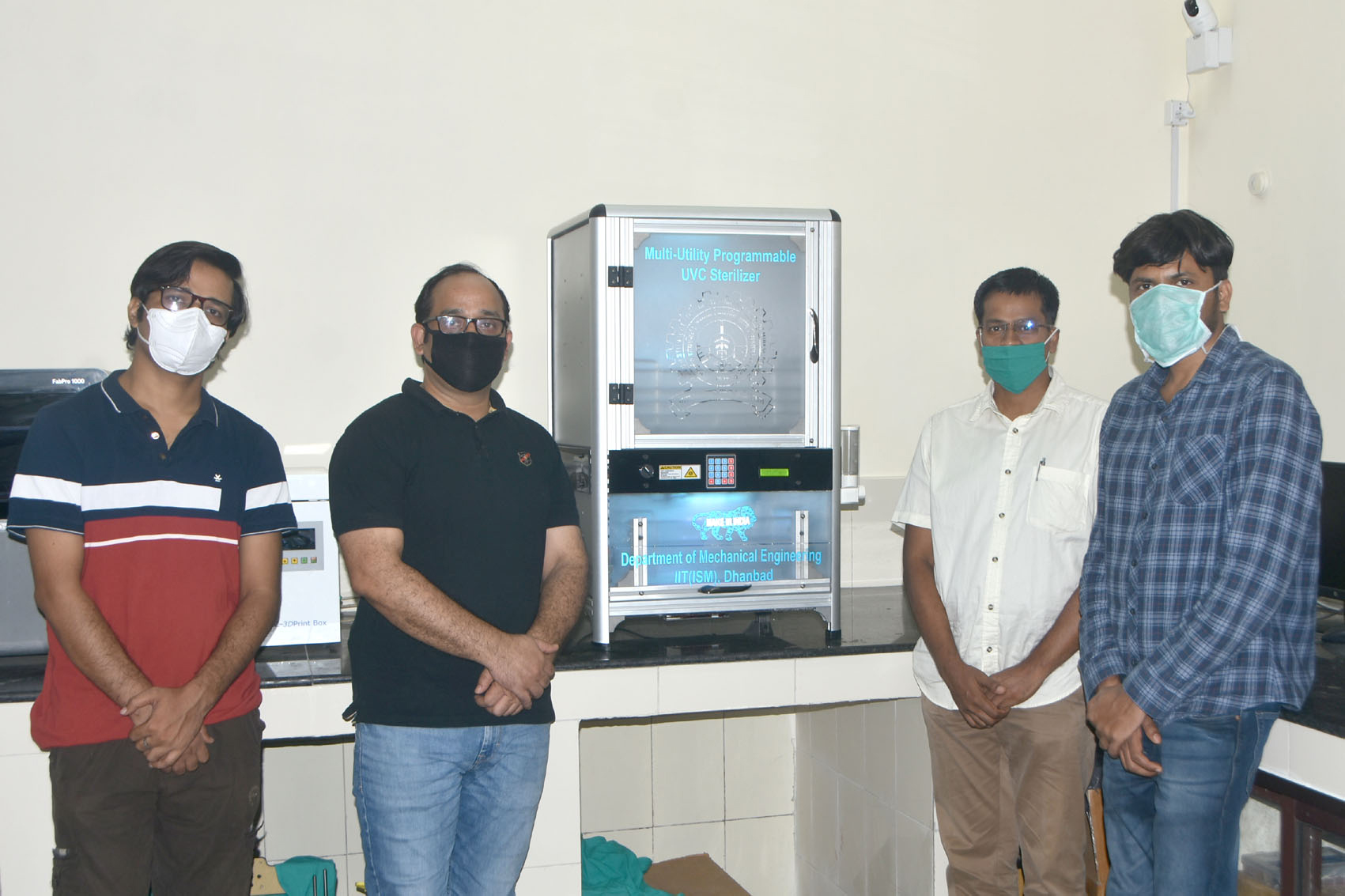The Dhanbad-based Indian Institute of Technology (Indian School of Mines) has come up with a disinfection chamber based on usage of ultraviolet radiation in its fight against Covid-19.
It had earlier developed several equipmens like a ventilator adaptor and also a silver particle that can be applied on cloth to help destroy viruses.
Structurally Covid-19 is similar to other coronaviruses such as severe acute respiratory syndrome (SARS) and Middle East respiratory syndrome (MERS), and can be addressed with existing disinfection methods such as disinfectants, drying heating, and ultra-violet radiations.
The faculty members of the department of mechanical engineering, IIT (ISM) have developed the disinfectant chamber to address the concern raised for rapid transmission of Covid-19 within the country.
The system was designed in the central fabrication facility of the institute. Professor A.R. Dixit of the mechanical engineering department, who is also the project coordinator, said the UVC (200-280nm) could be an effective measure for decontaminating surfaces.
Ultraviolet light has been demonstrated to be capable of destroying viruses, bacteria, and fungi, said Dixit.
The team comprising Dixit, Arun Dayal Udai Ashish Kumar and Ashish Siddharth designed the steriliser, which consists of two chambers to accommodate different-sized items.
“The time required to disinfect the items depends upon the size of the item and type of material,” said Dixit.
“The UVC dose is fixed based on data reported in the leading journal papers,” said Dixit.
The estimated time required to disinfect the item in the big and small chambers is three minutes and a minute, respectively.
He added that the system has the provision to set desired sterilising time, chamber selection, hand sanitising station, LED lights and warning signals.
“In addition to its functionality, the aesthetic look of the UVC chamber is also carefully designed,” said Dixit.
He added that the developed prototype is ready to be commercialised in case any interested industry/organisation approaches the institute.
“We are also thankful for the technical support of faculty members of department of physics of our institute, professors M.R. Singh, S.K. Sharma and A. Kar,” added Dixit.











